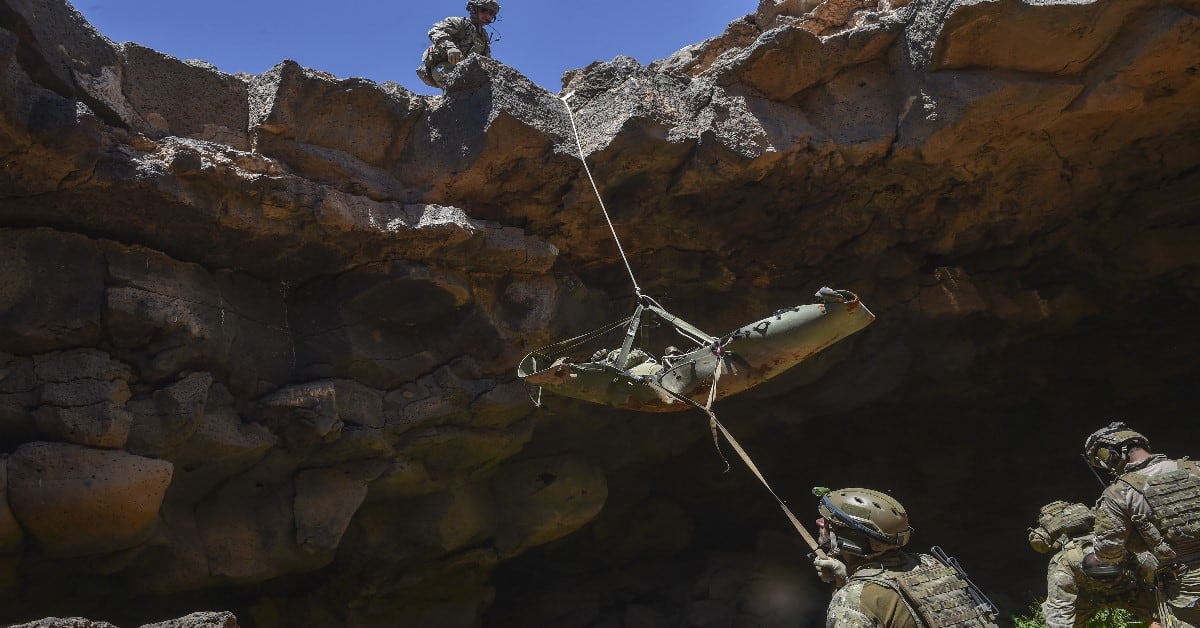Across the military branches, commanders are looking at how artificial intelligence can be used to fly better aerial routes, insert robotic vehicles into formations and process vast amounts of data in the information-dense battlefields of the near future.
The Defense Advanced Research Projects Agency recently started a program that looks to use that same technology and other tools to get inside the enemy’s head, learning their intent in the nebulous “gray zone” of conflict that marks modern warfare.
Gray zone conflicts are those in which state and non-state competition becomes conflict but remains below the level of conventional warfare. Experts have pointed to Russia’s use of hybrid threats in Ukraine and other areas, along with China’s aggression in the South China Sea as examples.
RELATED

The new program, Collection and Monitoring via Planning for Active Situational Scenarios, or COMPASS, aims to develop software that would gauge an adversary’s response to stimuli and then discern that adversary’s intentions and give commanders intel on how to respond, according to a DARPA release.
“As we see increasingly more sophistication in gray-zone activity around the world, we need to leverage advanced AI and other technologies to help commanders make more effective decisions to thwart an enemy’s complex, multi-layered disruptive activity,” said Fotis Barlos, DARPA program manager.
Think fast-paced intelligence, surveillance and reconnaissance in the signals sphere, with virtual probing.
“We’re looking at the problem from two perspectives: Trying to determine what the adversary is trying to do, his intent; and once we understand that or have a better understanding of it, then identify how he’s going to carry out his plans — what the timing will be, and what actors will be used,” Barlos said. “The first is the what, and second is the where, when, and how.”
This program, Barlos said in the DARPA release, isn’t geared toward developing new sensors, virtual reality or hardware. It is all about advanced software that will serve up options to commanders by “assimilating a large amount of intelligence collected using existing, state-of-the-art systems.”
“The ultimate goal of the program is to provide theater-level operations and planning staffs with robust analytics and decision-support tools that reduce ambiguity of adversarial actors and their objectives,” he said.
The COMPASS program is seeking experts in AI, machine learning, game theory, modeling and simulation, control systems and other related fields, according to the release.
They have a “Proposers Day” scheduled for Friday, March 30 in Arlington, Virginia.
Todd South has written about crime, courts, government and the military for multiple publications since 2004 and was named a 2014 Pulitzer finalist for a co-written project on witness intimidation. Todd is a Marine veteran of the Iraq War.




